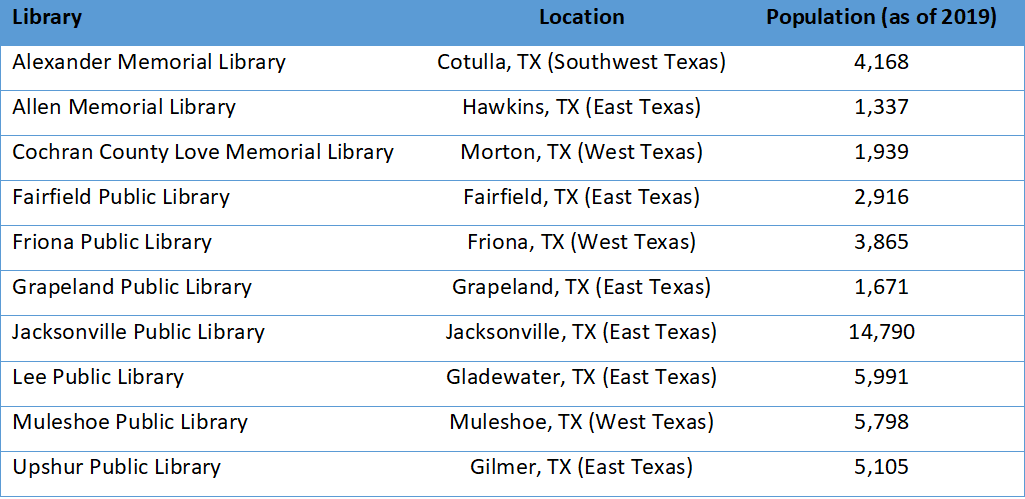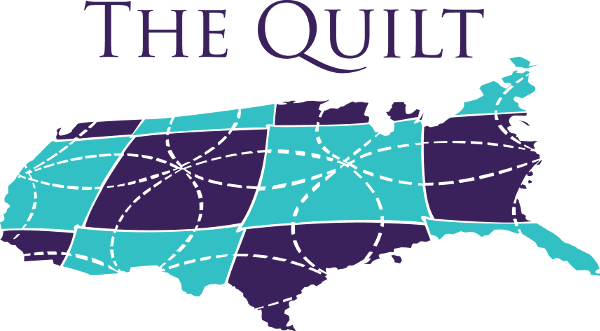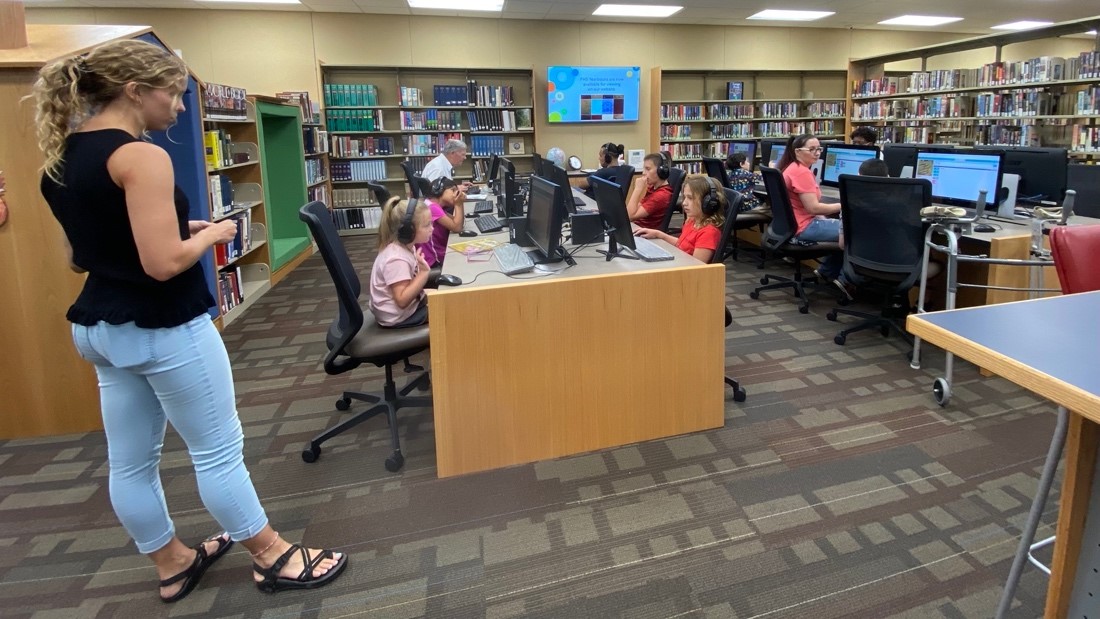Ten rural libraries in Texas are now benefiting from LEARN connectivity as part of a project with the Texas State Library and Archives Commission (TSLAC).
LEARN worked with several partners to provide these libraries with up to 1G connectivity to the LEARN network, increasing their Internet reliability and speeds for some 100 times faster.
“Rural libraries tend to be chronically underfunded and struggle to have the resources to serve their communities,” says retired TSLAC state librarian, Mark Smith. “This project has brought Internet access to 10 communities that would not be able to have speed of access in a reliable network that ties them into this larger world of education and community anchor institutions, and does that in a way that is affordable and sustainable for them in the long run.”
One of those libraries is located in Grapeland in East Texas.
“Grapeland is a small rural town, and if you don’t live in the city limits, then your options for Internet are limited to slow satellite Internet,” says Ashley Corns, a librarian at Grapeland Public Library. According to Corns, a typical library visitor in this community is likely to be a retiree or a homeschooler, many looking for a better Internet connection than what they have at home in order to search the web or complete schoolwork. When the library reopened after COVID closures library foot traffic doubled with its new connection to the LEARN network. For communities such as Grapeland, a straightforward upgrade of the library’s Internet unsurprisingly makes an outsized impact.
At Allen Memorial Library in Hawkins, also East Texas, librarian Norma Hallmark says local patrons love having more reliable Internet in a central location in town. “Hawkins has a lot of seniors in the area – some use the library computers,” says Hallmark. “Wi-Fi is great for people bringing their own devices to use. Some patrons need to stream training videos for work, and they come to the library to do it because it’s an issue for their home Internet.”

LEARN and the libraries it serves through this project share one thing in common: the duty to be a convener of community to the people they serve. With a connection to LEARN, libraries across rural Texas are now better prepared to meet the needs of their patrons.
Lonestar Education and Research Network (LEARN) is a consortium of 42 organizations throughout Texas that includes institutions of higher education, community colleges, and K–12 public schools. Organized as a 501(c)(3), LEARN connects its members and over 300 affiliated organizations to statewide resources through high-performance optical and IP network services.

